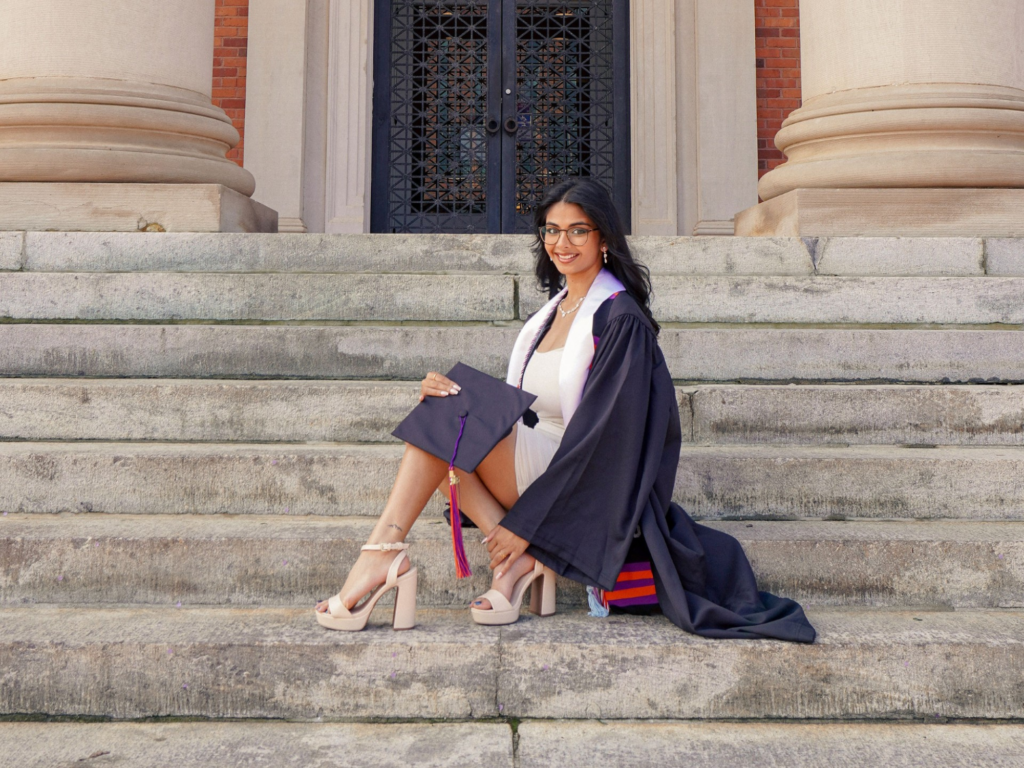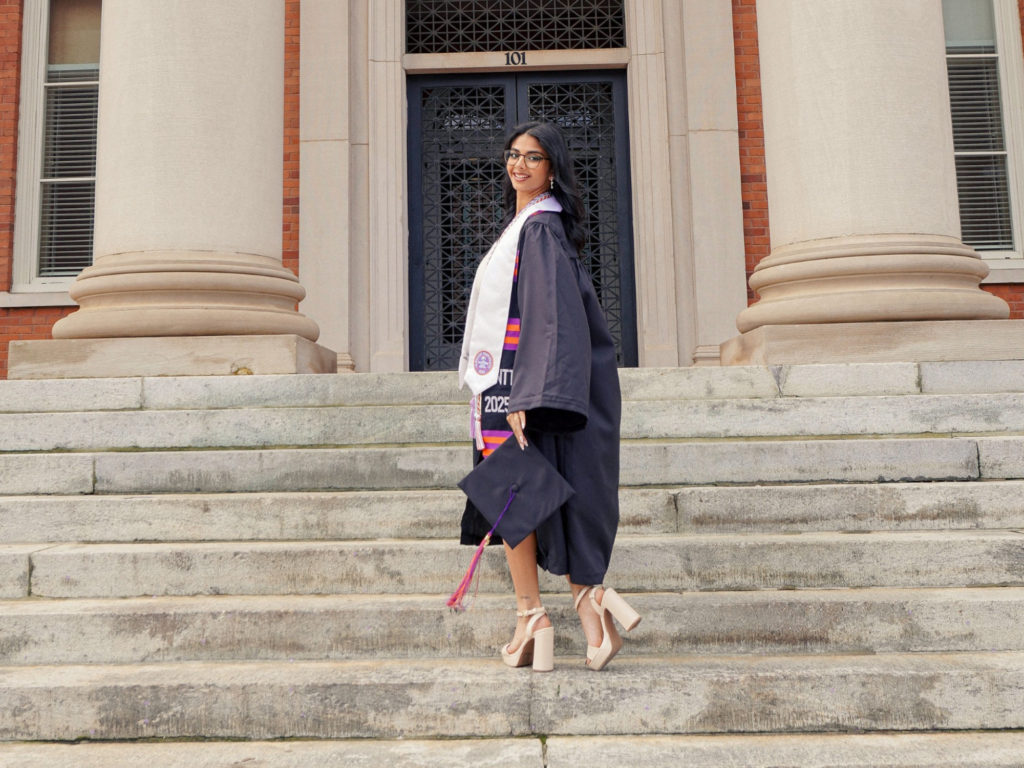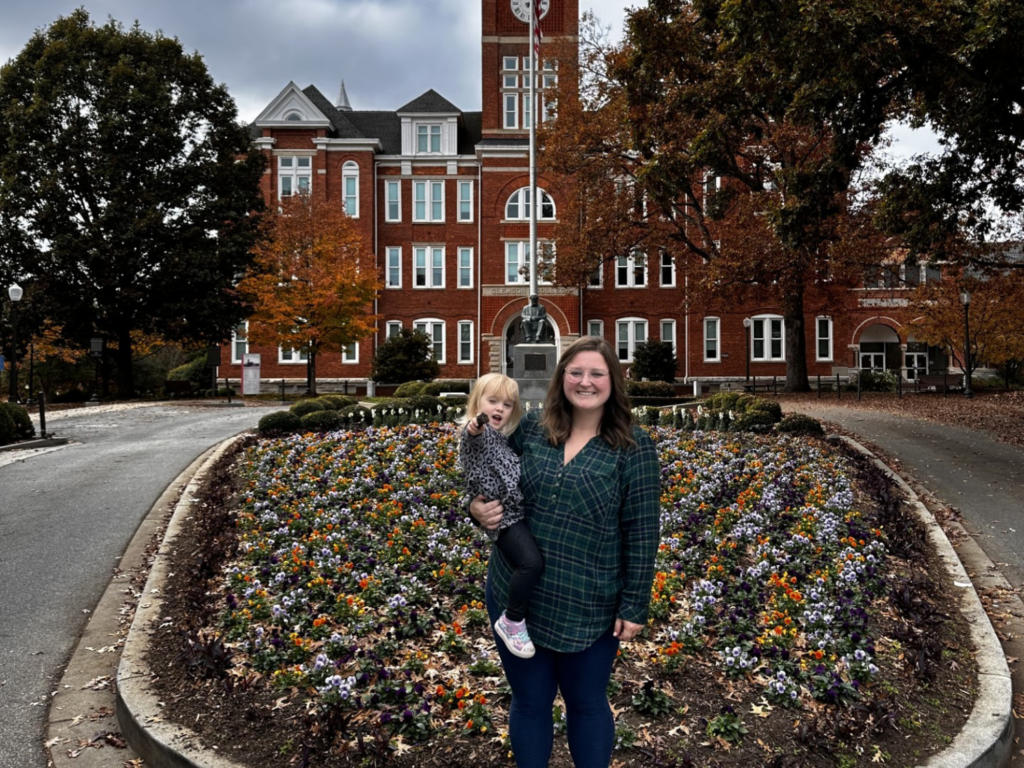
Margo Courtney’s ’21 experience in research labs and creative inquires (CI) during her undergraduate experience at Clemson prepared her for her career at Ionis Pharmaceuticals in San Diego, CA.
“My time in research labs and my CI prepared me well to feel comfortable in the [Ionis Pharmaceuticals] lab and the background in genetics and biochemistry has made it very easy to understand the concepts of our therapies and the diseases we work to treat.”

Margo was a genetics and biochemistry double major with a minor in life sciences and worked at the Academic Success Center as a peer tutor for general and organic chemistry.
“Orgo was probably my favorite class of all of college!”
Margo was member of the Zeta Tau Alpha sorority and held an executive position as the academic achievement chair. She also worked in Dr. Will Richardson’s lab for a CI in the biomedical engineering department.

“We developed in vitro tissue culture platforms to create technologies to control fibrosis related to heart failure.”
After graduating in May of 2021, Margo moved to San Diego to work for as a Research Associate II at Ionis Pharmaceuticals, a company that focuses on developing RNA-targeted therapies, specifically Antisense Oligonucleotides for a variety of diseases.

“It’s been a great experience, and I can see the ocean from my lab which is pretty fun! They really helped develop my skills both professionally and in the lab. I often times am asked to present my research, help with publications and attend conferences so it has the feel of academia even though I’m working in industry.”
Margo works for the Genome Integrity Group, where they mainly focus on age-related diseases and neurodegenerative conditions. Margo’s main concern is working to identify a target and relevant treatment of Huntington’s Disease (HD).

“I make in vitro neuronal models for the disease starting with iPSCs, then differentiating them into neurons or organoids, and finally try to model the repeat instability of the repeat in HD in these cell models with the hope of reversing somatic instability with our various therapies.”
The day-to-day at work changes depending on the specific project she is working on or protocols, but it mainly entails working in the lab doing cell culture, treatment and downstream analysis of Next-Generation Sequencing or qPCR.
“I knew I enjoyed the lab and wanted to spend some time in industry out of school to figure out what specific type of genetic research and science related path I wanted to go down.”

Margo’s time in industry motivated her academically to obtain her Ph.D. Last year she started back in school at Clemson in the Healthcare Genetics and Genomics (HGG) Program. Going back to school and getting a higher degree will open doors to careers that truly interest her. Margo hopes in the future to stay in industry but lean more into the translational science that is highlighted in the HGG program.
“Becoming a medical science liaison would be great to bridge the gap between my knowledge of genetic research and clinical practice as I have always loved discussing, teaching and communicating scientific concepts and ideas to make it more accessible and impactful for others hopefully in the neurodegenerative or aging field.”





























